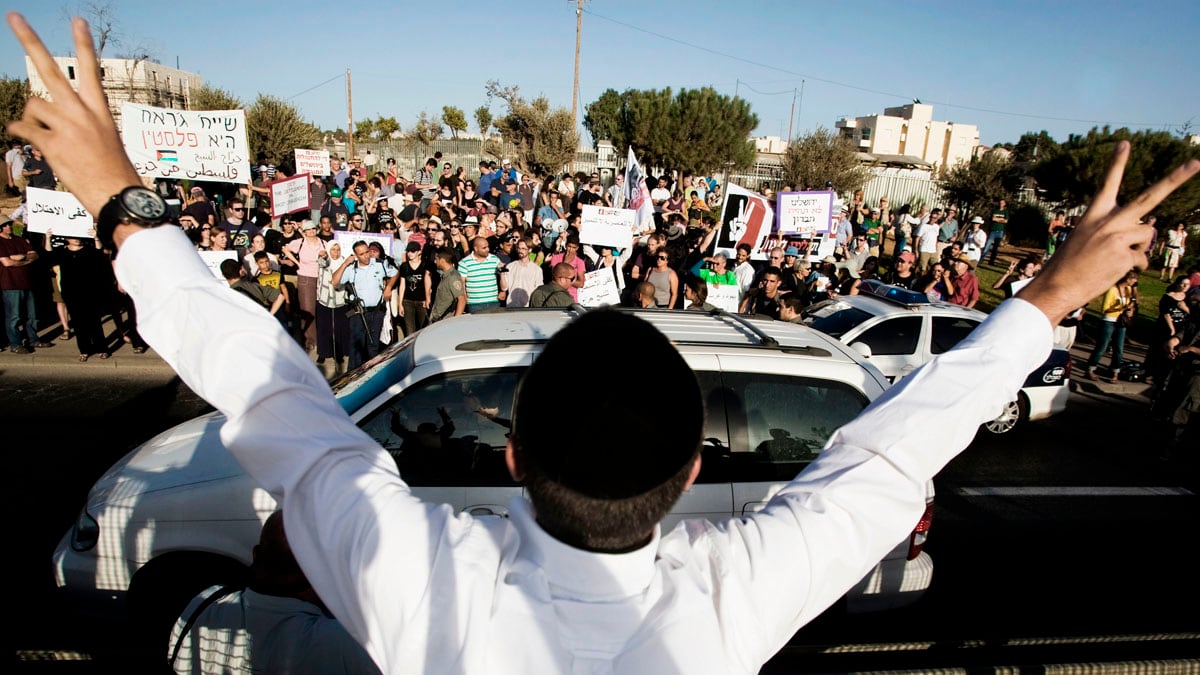The Brookings Institution released a study of Israeli public opinion in the wake of the most recent war in Gaza, and to the extent that it’s gotten any attention in the midst of subsequent events, most outlets have trumpeted the fact that 55% of Israeli Jews “don’t believe [peace with the Palestinians] will ever happen.” And, while important, I would submit that that statistic isn’t the most telling one in the report.Instead, the single most significant number released by Brookings can be found in response to the following question:
In 2002, Arab countries offered the Arab Peace Initiative, a comprehensive peace deal with Israel based on Israeli withdrawal from the territories occupied in the 1967 war and full peace agreements between Israel and all Arab states. If this offer is renewed with support from Egypt’s new government, how should the Israeli government react?

Seven percent of Israeli Jews said “accept the offer as proposed,” and 43 percent said “accept the offer as a basis for negotiation,” but fully 46 percent of Israel’s Jews said that their government should “reject the offer.” Just to be clear: Nearly half of Israeli Jews would reject out of hand a comprehensive peace deal based on withdrawal from the occupied territories and full peace agreements with all Arab states—aka: That thing Israel has been saying it wants for the entire length of its existence.
And then there are the responses to the following question: “What do you believe is the likely outcome if the prospects of a two-state solution of the Palestinian-Israeli conflict collapse?”
38 percent of Israeli Jews believe such a circumstance will lead to “a state of intense conflict for years to come” – but on the other hand, 42 percent feel that the status quo will continue “with little change,” while seven percent say that “Palestinians will eventually surrender to Israeli power, give up and integrate into other societies.” Which is to say: half of Israel’s Jews believe that if they cannot achieve peace with the Palestinians, it won’t have much of an impact on their lives (other than perhaps to make the trouble go away).
Absent access to the raw data, there’s no way to know how (or if) any of these numbers correlate, but there’s something striking to the fact that nearly half of Israeli Jews would actively reject comprehensive peace, and half of Israeli Jews don’t think it’ll matter much if they do. The statement “I don’t think there will ever be peace” takes on an entirely different quality when seen less as a statement of despair, and more as a of a shrugging of the shoulders.
On the other hand, four percent of Israeli Jews think a peace agreement will be achieved in the next five years, and 40% believe such an agreement to be inevitable, “but it will take more time.”
Given the near-constant cycle of violence over the last two decades, and the fact that half of their compatriots appear to have given up on the conflict ever being resolved, I can’t help but feel that the real news here is that so many of Israel’s Jews still think peace stands a chance.






